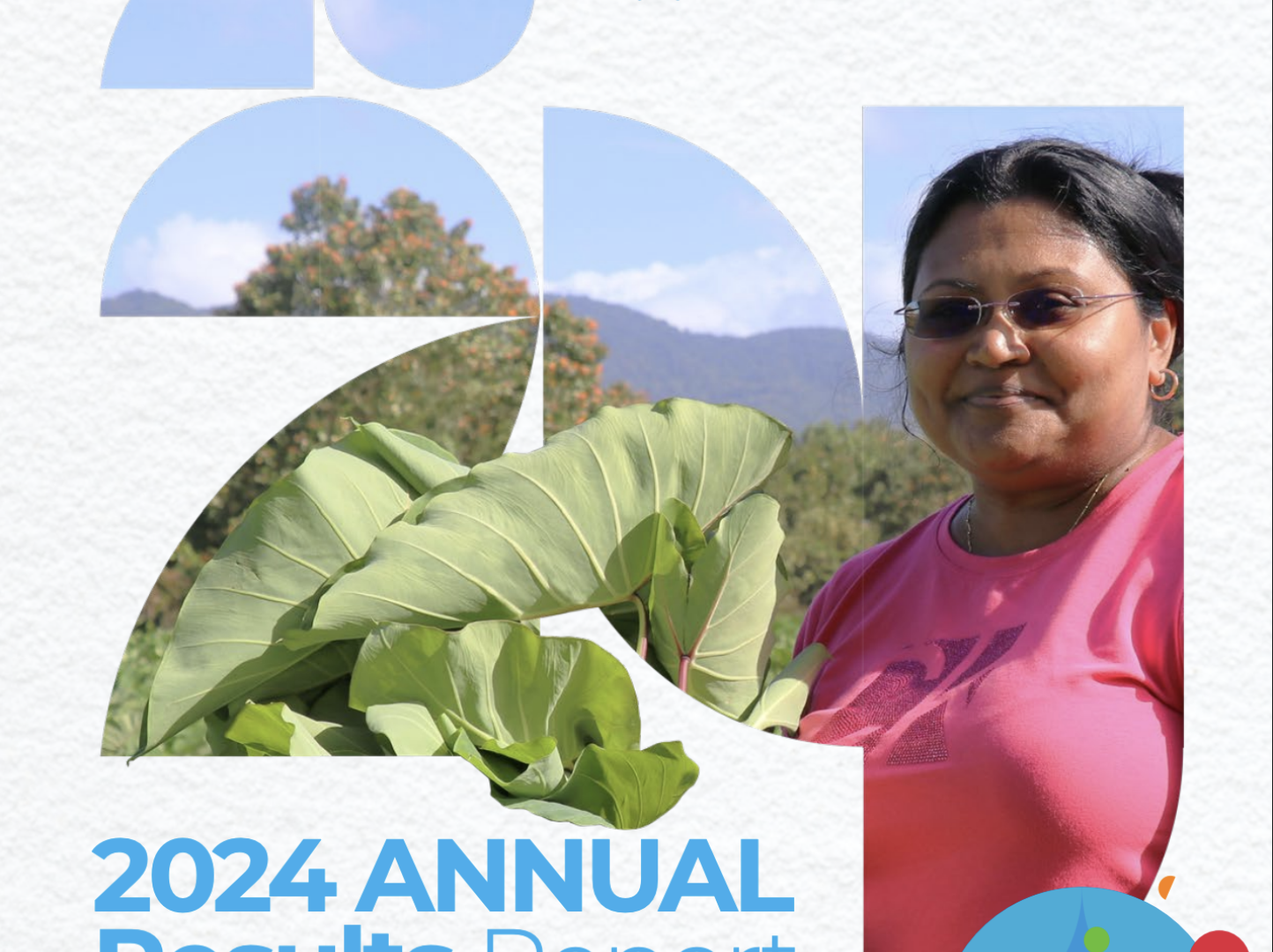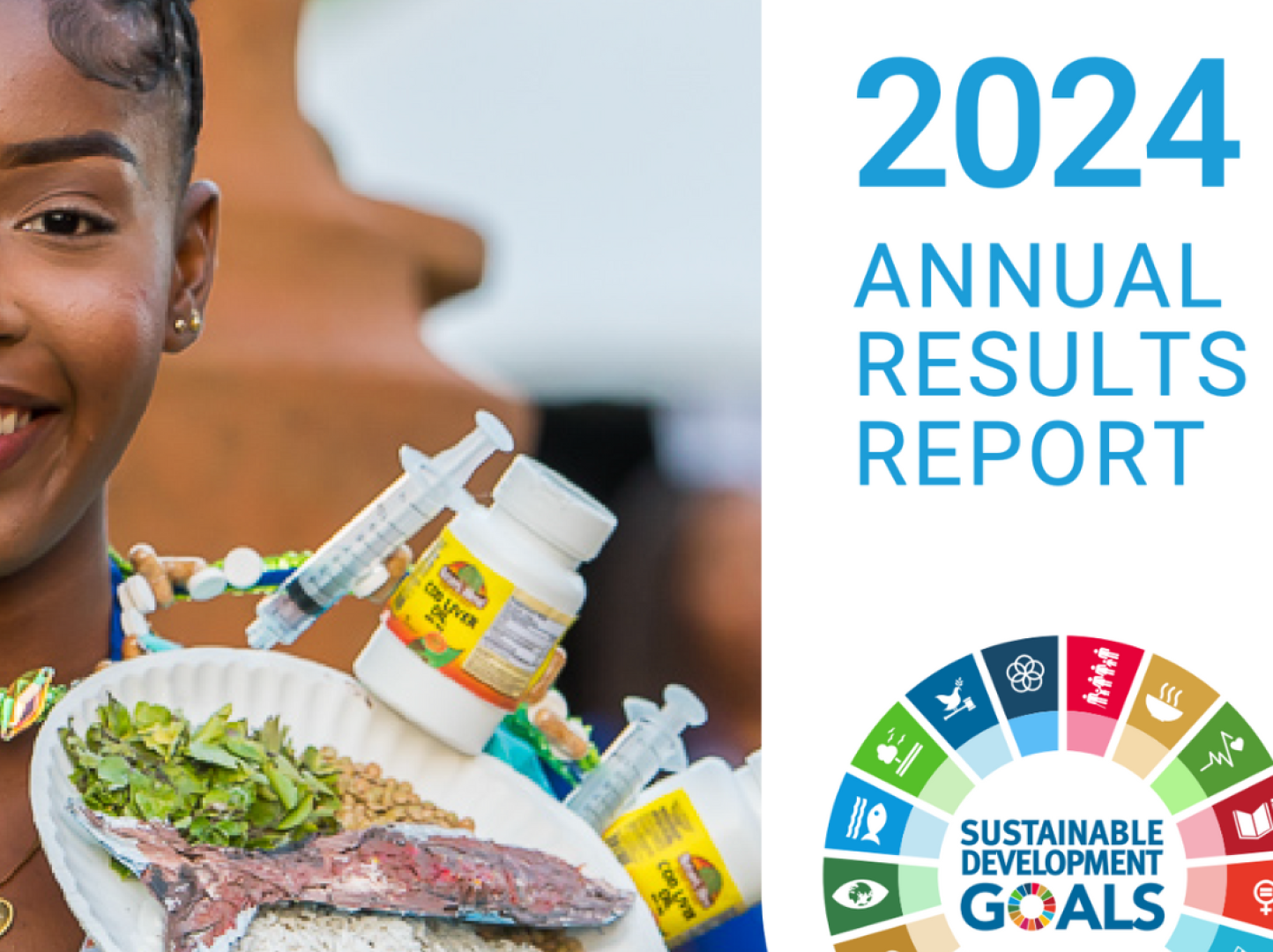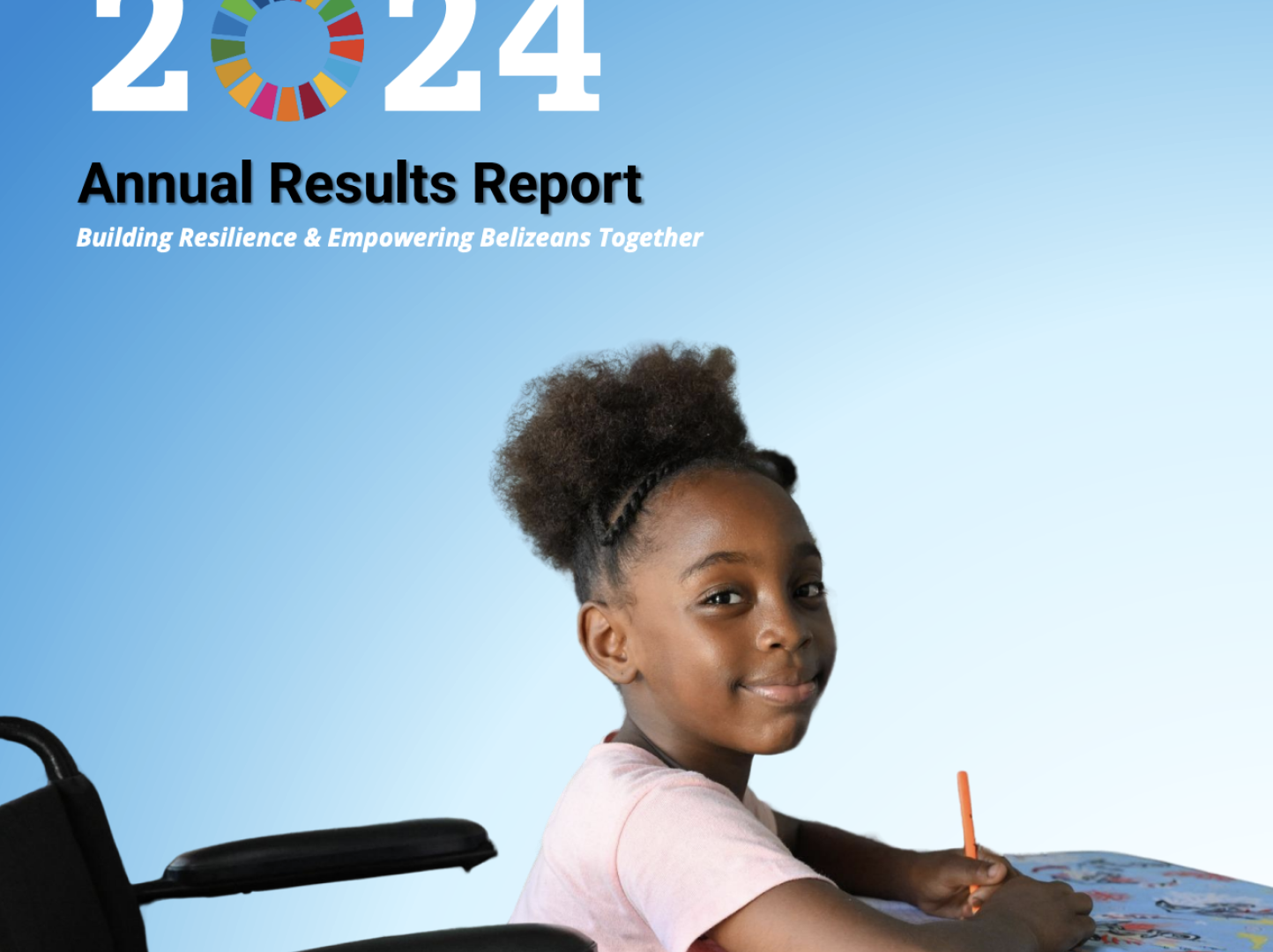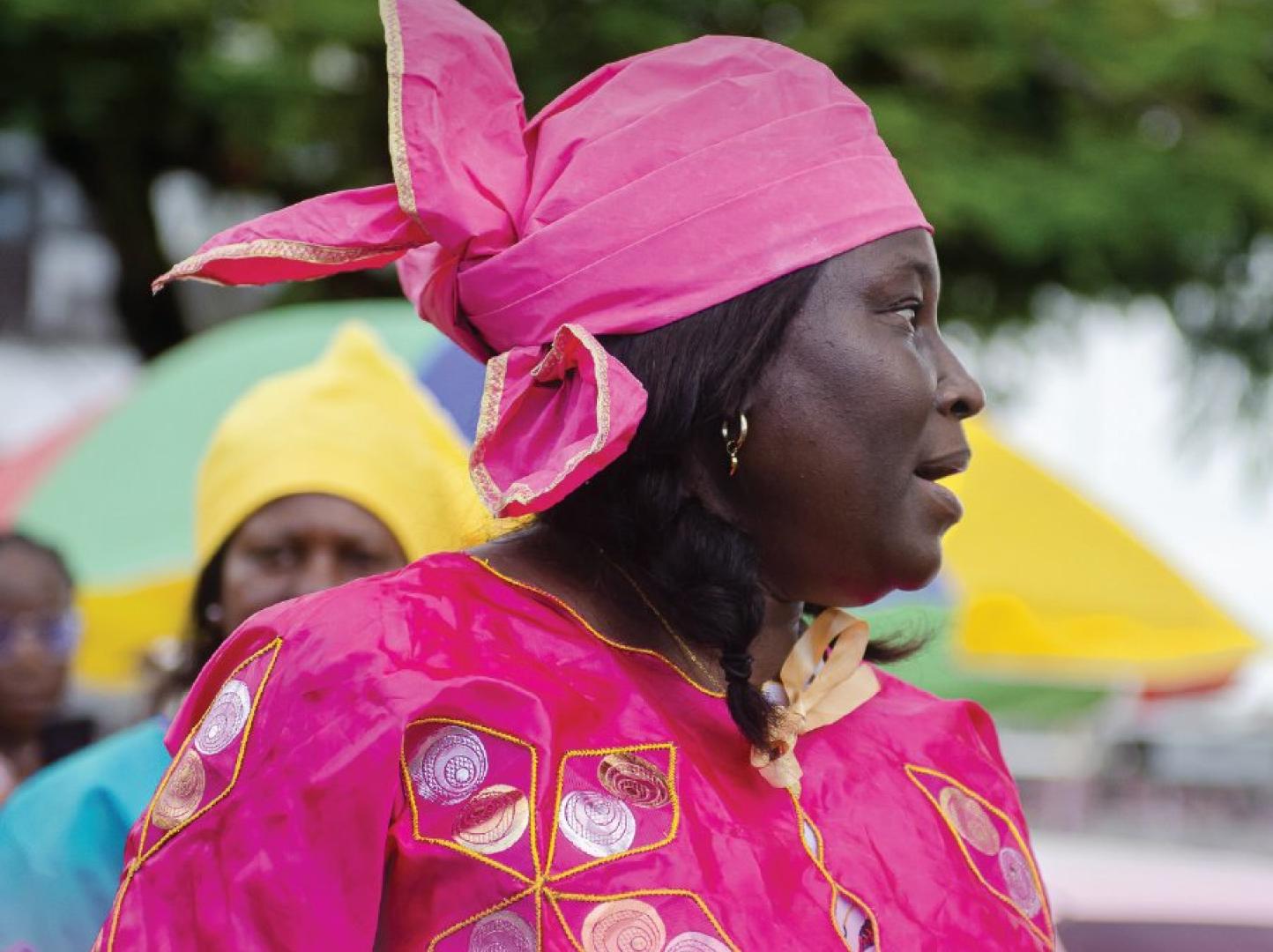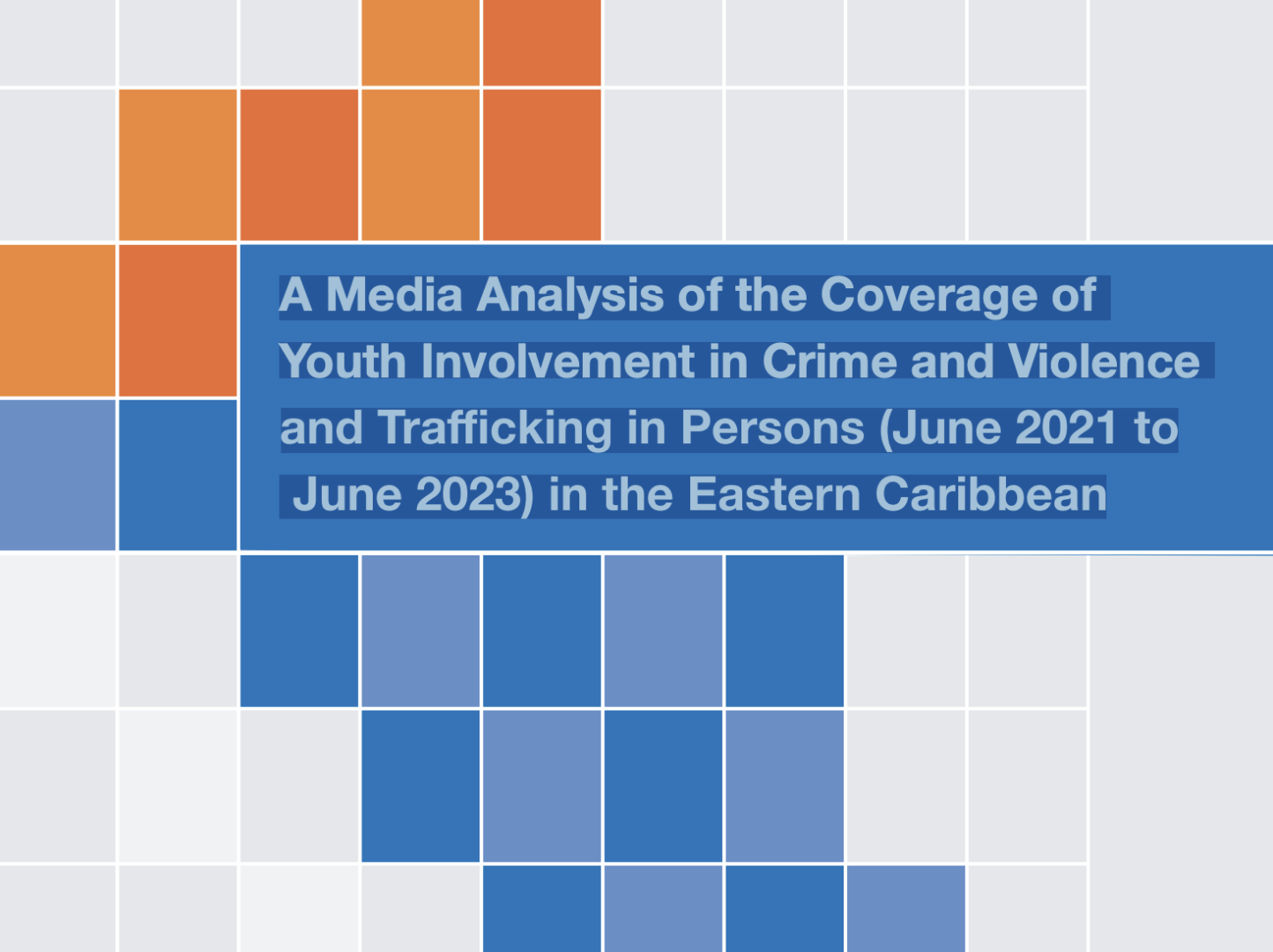Latest
Story
25 June 2025
PAHO collaborates with stakeholders to develop new Caribbean Action Plan on health and climate change
Learn more
Story
17 June 2025
Advancing Circular economy in the Caribbean: The Zero Waste in the Caribbean project at the heart of regional action
Learn more
Story
13 June 2025
UN ocean summit in Nice closes with wave of commitments
Learn more
Latest
The Sustainable Development Goals in the Caribbean
The Sustainable Development Goals are a global call to action to end poverty, protect the Earth’s environment and climate, and ensure that people everywhere can enjoy peace and prosperity. The United Nations in the Caribbean is supporting delivery on all 17 goals:
Take Action
20 May 2025
Caribbean Food Security and Livelihoods Survey 2025
Your participation in this survey will play a large part in providing an overview of the food security and livelihoods situation in your country or territory. This survey is OPEN TO ALL who currently live in the Caribbean.
1 of 3

Take Action
26 May 2025
UNESCO Transcultura Caribbean Creative Tourism Awards
The Caribbean Creative Tourism Awards will be awarded across 9 categories, celebrating the region's creativity, cultural diversity, and sustainable tourism initiatives. Stakeholders across cultural, creative and tourism are encouraged to apply by 1 June 2025.
1 of 3

Story
20 February 2024
Decide to join the United Nations as a UN Volunteer
You can decide to change the lives of others while changing your own as a United Nations Volunteer (UNV). Volunteering for the UN is a full-time commitment to peace and sustainable development with a UN agency, fund or programme, in your country or abroad. RIGHTS AND BENEFITSThe United Nations Volunteers (UNV) programme encourages broad and inclusive participation, and as such ensures a variety of benefits to secure a basic standard of living while serving as a UN Volunteer. Benefits include: Monthly living allowance Medical insurance (including dependents) Annual leave (2.5 days per month served) Learning opportunities Reasonable accommodation for persons with disabilities Travel allowance for international UN Volunteers See more on the UNV Conditions of Service : https://bit.ly/UNV-COS PROFESSIONAL PROFILESBuild on your professional experience and knowledge - whether in development, emergency response, education, health, environment, communications, social work and much more. ASSIGNMENT TITLESSome of the most popular volunteer assignment titles are: Field Officer (in a wide variety of areas) Community Development Officer Communications Officer Protection/Human Rights Officer Monitoring & Evaluation Officer MAIN PARTNERSAs a UN Volunteer you can serve with the following UN entities, among others: United Nations Children's Fund (UNICEF) United Nations Development Programme (UNDP) UN Refugee Agency (UNHCR) International Organization for Migration (IOM) UN High Commissioner for Human Rights (OHCHR) United Nations Population Fund (UNFPA) World Food Programme (WFP) In 2022, over 2,500 UN Volunteers served with over 30 UN partners in Latin America and the Caribbean! LEAVING NO ONE BEHINDThe UNV programme is committed to representing the diversity of the world's societies. If you are a person with disabilities, a member of the LGTBQ+, afro-descendant or indigenous communities, or any other minority, you are encouraged to apply. CATEGORIESAssignments are offered into four volunteer categories, which determine eligibility: Expert: candidates must be at least 35 years old and have more than 15 years of professional experience. Specialist: candidates must be at least 27 years of age and have at least 3 years of professional experience. Youth and University: candidates must be between 18 and 26 years of age, and no previous professional experience is required. Community: No previous professional experience or academic requirements needed but must live in the community they serve. Before applying, we recommend carefully reading the specific requirements of your selected assignment. DECIDE TO APPLYRegister in UNV’s Unified Volunteer Platform: app.unv.org, complete your professional profile and apply to vacancies NOW. When filtering vacancies, verify the volunteer category (Expert, Youth, etc.) you fit in and define whether to volunteer in your country or abroad. UN Volunteer opportunities reflect the evolving needs of UN agencies, funds and programmes. We encourage you to visit the UNV platform regularly, so as not to miss any opportunity. VOLUNTEER ONLINEWith the Online Volunteering service, you can undertake volunteer tasks for up to 20 hours a week and for a maximum of 12 weeks with different United Nations entities, governments, public institutions and civil society organisations. As the Online Volunteering service is a free time commitment, selected individuals are not under contract with the UN Volunteers programme or the host entity. As such, Online Volunteers are not eligible for the entitlements and benefits stipulated in the Conditions of Service. Their contribution is recognised with a certificate. Know more here: https://www.unv.org/become-online-volunteer , filtered_html
1 of 3
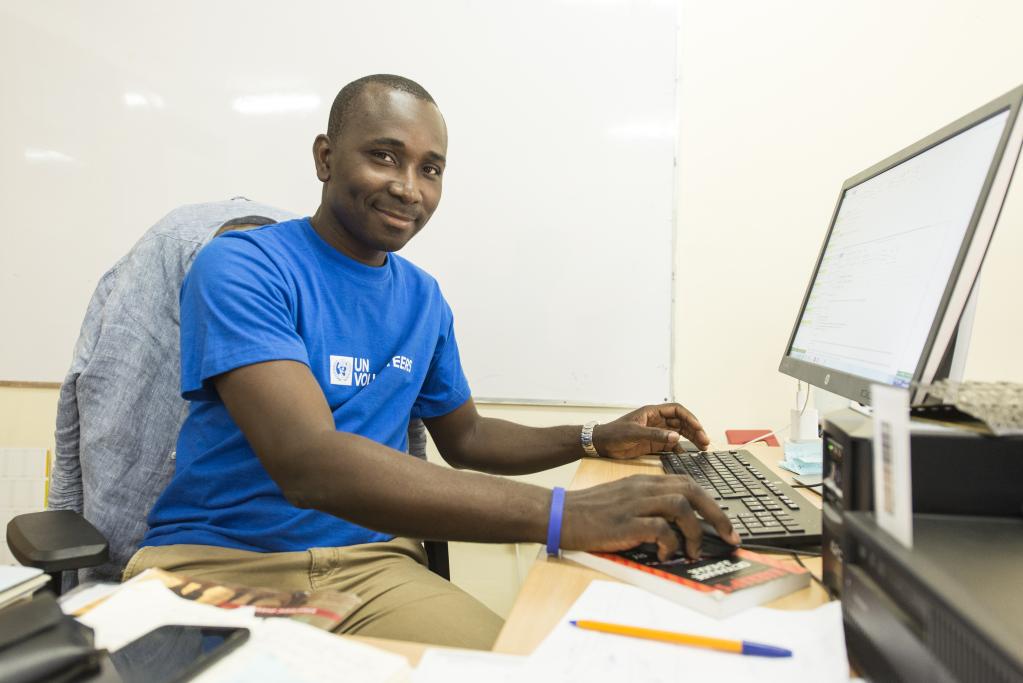
Story
26 June 2025
PAHO collaborates with stakeholders to develop new Caribbean Action Plan on health and climate change
Bridgetown, Barbados, 25 June 2025 (PAHO/WHO) – From 17-19 June, representatives from the Ministries of Health and Environment, CARICOM and its agencies and other key stakeholders met in Barbados to discuss the proposed new Caribbean Action Plan on Health and Climate Change. During the meeting convened by the Pan American Health Organization (PAHO), regional and global experts assessed the progress of climate change and health in the Caribbean, shared experiences, strengthened networks and developed strategies to further enhance climate resilient health systems.During the meeting, stakeholders reviewed the first Caribbean Action Plan on Health and Climate Change (2019-2024), provided valuable insights to the development of the new plan, discussed youth empowerment, the gaps, challenges and opportunities for research, implementation and financing of climate and health actions, among other topics. It is hoped that the new Caribbean Action Plan on Climate Change and Health will be presented to the regional community at COP30 on Health Day, 13 November 2025, as part of the Caribbean’s contribution to the global climate and health dialogue.Mr. Wayne Marshall, Permanent Secretary, Ministry of Health and Wellness, Barbados commended the PAHO/WHO for its support to Barbados and the wider region and described the meeting as key to amplifying our voices so that health has a stronger presence in climate discussions, both locally and on the global stage. “The threats to public health posed by rising temperatures, extreme weather events, vector-borne diseases, food and water insecurity, and the disruption of health services are not isolated incidents. They are shared regional realities that demand shared solutions,” he said.PAHO/WHO Representative for Barbados and the Eastern Caribbean Countries, Dr Amalia Del Riego, pointed out that the first plan stands as a milestone in sub-regional cooperation. “As we meet today, we build on that strong foundation. This gathering is both a reflection of past progress and a call to action for what lies ahead. We must ensure that health is no longer peripheral, but central to climate adaptation, financing and resilience building efforts across the region,” she asserted.Interim Director of the PAHO Caribbean Subregional Program Coordination Office, Dr Juan Manuel Sotelo, underlined that over the past five years the Caribbean had laid a strong foundation through key regional initiatives, backed by the European Union (EU) and the Green Climate Fund. These include the development of Health National Adaptation Plans, Early Warning Systems for Dengue, the rolling out of health co-benefit tools and improved national capacities for climate-informed surveillance. Seven CARICOM countries are also working to strengthen intersectoral coordination through the establishment of national climate and health committees, conduct needs assessments and carbon footprint assessments in healthcare facilities in Belize, Guyana, Jamaica and Saint Lucia.Despite the difficult geopolitical times, Dr. Maria Neira, Director of Public Health, Environment and Social Determinants of Health at the World Health Organization, highlighted that the reality remains unchanged. “Being among the most vulnerable gives you the possibility of being among those who have more experience, more impetus to do something, because you realize how important it is. And that is why we need you in this part of the world as a champion on understanding how to respond to the challenges of climate change to protect our health, how to argue for more action on adaptation to climate change,” Dr Neira explained.Mr. Luca Trinchieri, Team Leader, Green Deal, EU Delegation to Barbados, Eastern Caribbean, OECS and CARICOM/CARIFORUM, European Commission, described efforts in the Caribbean as well aligned with the EU Global Gateway Agenda. “It is essentially about unlocking long-term, inclusive development, and putting people’s well-being, including health at the heart of our partnership. But, as you know too well, the path to resilience is not a single project, it is not a 5-year Plan, it is a long-term transformation, one that requires sustained leadership, inclusive governance, community ownership and predictable financing,” he remarked.While noting that the Caribbean stood at a crossroads, Ms Alison Drayton, Assistant Director General, CARICOM, underlined that collective leadership and strategic collaboration were critical to forging strengthened systems, innovative solutions and sustainable pathways to safeguard health outcomes in a rapidly changing global environment. .............................................................................................................This story was first published by PAHO., filtered_html
1 of 5
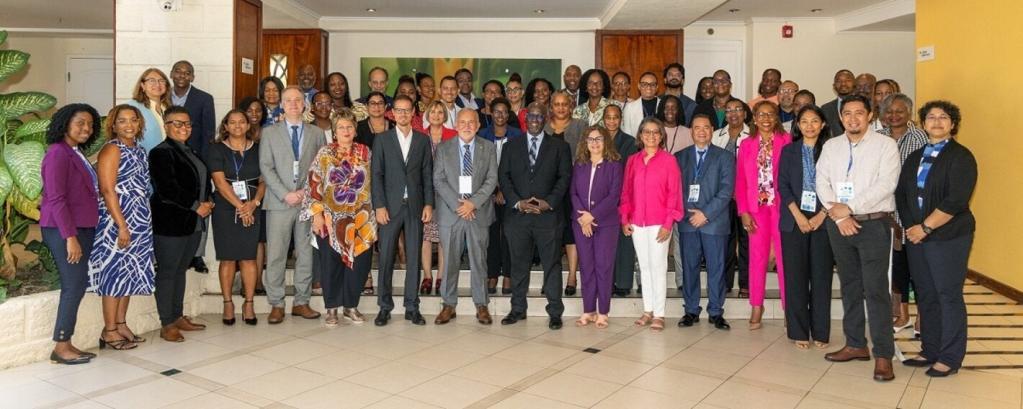
Story
17 June 2025
Advancing Circular economy in the Caribbean: The Zero Waste in the Caribbean project at the heart of regional action
On World Environment Day 2025, observed 5 June, the Caribbean Community united under the global theme “Beat Plastic Pollution”, highlighting the urgent challenge of plastic waste in the region. With over 322,000 tonnes of plastic waste left uncollected annually and coastlines littered with thousands of waste items per kilometre, this crisis poses a serious threat to biodiversity, blue economies and public health.Just months earlier, on International Day of Zero Waste, observed 30 March, attention was drawn to the rapidly growing issue of fashion and textiles waste. Every second, a truckload of clothing is discarded worldwide, adding to overflowing landfills and marine pollution, and threatening key Caribbean sectors such as tourism, fisheries and agriculture.Though different in form, both plastic and textile waste reflect the same root challenge: a linear production model that generates more waste than the planet can absorb. Together, they underscore the need for a systemic transition towards circular economy practices—where materials are reused, waste is minimised, and economic activities are designed to sustain the environment.This is precisely where the Zero Waste in the Caribbean Project plays a transformative role. Funded by the European Union in collaboration with CARIFORUM, and co-financed by the German Cooperation, the project is jointly implemented by the UN Environment Programme (UNEP), the German Agency for International Cooperation (GIZ), and the French Development Agency (AFD), in partnership with the Organisation of Eastern Caribbean States (OECS).The project is at the heart of the Caribbean’s transition to circular economy-driven waste management systems. It supports 16 CARIFORUM countries to:Integrate circular economy principles that reduce waste generation, improve resource efficiency, and curb pollution;Strengthen policy frameworks and institutional capacity to manage waste sustainably, based on data, diagnostics and evidence-based solutions;Align national waste strategies with Nationally Determined Contributions and key Sustainable Development Goals (SDGs);Attract investment and scale up innovative business models that promote green growth and reduce dependence on landfilling and open dumping;Foster inclusive participation, empowering local governments, the private sector, civil society and vulnerable groups—particularly women and youth—to lead circular innovation and sustainable behaviour change.Over the project’s duration, spanning 2022–2026, key activities have included baseline assessments, policy support, community initiatives, capacity-building, and public awareness on waste reduction and circular solutions. The project has so far completed model demonstrations in Grenada and Dominica, supported three High-Level Forums, provided technical assistance on information systems, policies and financial mechanisms across several countries, and offered integrated support to the Dominican Republic. It has also delivered regional training, launched a data hub, implemented a communication strategy, hosted 14 webinars and carried out over 10 visibility actions, fostering EU–Caribbean collaboration and public engagement for sustainability.Its holistic approach ensures that addressing plastic and textile pollution is part of a wider regional strategy—turning waste into a resource, advancing climate goals, and strengthening resilience and circularity in Caribbean societies.Through this collaborative effort, the Caribbean is showing that zero waste is not a distant ambition but a practical and achievable path toward greener economies, healthier ecosystems, and stronger communities., filtered_html
1 of 5
Story
14 June 2025
UN ocean summit in Nice closes with wave of commitments
“We close this historic week not just with hope, but with concrete commitment, clear direction, and undeniable momentum,” Li Junhua, the UN’s Under-Secretary-General for Economic and Social Affairs and Secretary-General of the summit, told reporters.Co-hosted by France and Costa Rica, the five-day event brought 15,000 participants, including more than 60 Heads of State and Government, to France’s Mediterranean coast.With over 450 side events and nearly 100,000 visitors, the gathering, dubbed UNOC3, built on the momentum of previous ocean summits in New York (2017) and Lisbon (2022). It culminated in a shared call to expand marine protection, curb pollution, regulate the high seas, and unlock financing for vulnerable coastal and island nations. Ambitious pledgesThe conference’s outcome, known as the Nice Ocean Action Plan, is a two-part framework that comprises a political declaration and over 800 voluntary commitments by governments, scientists, UN agencies, and civil society since the previous conference.“These range from advocacy by youth to deep-sea ecosystem literacy, capacity building in science and innovation, and pledges to ratify intergovernmental treaties,” Mr. Li said.The pledges unveiled this week reflected the breadth of the ocean crisis. The European Commission announced an investment of €1 billion to support ocean conservation, science, and sustainable fishing, while French Polynesia pledged to create the world’s largest marine protected area, encompassing its entire exclusive economic zone – about five million square kilometers.Germany launched a €100-million programme to remove underwater munitions from the Baltic and North Seas. In addition, New Zealand committed $52 million to strengthen ocean governance in the Pacific, and Spain announced five new marine protected areas.A 37-country coalition led by Panama and Canada launched the High Ambition Coalition for a Quiet Ocean to tackle underwater noise pollution. Meanwhile, Indonesia and the World Bank introduced a ‘Coral Bond’ to help finance reef conservation in the country.“The waves of change have formed,” Mr. Li said. “It is now our collective responsibility to propel them forward – for our people, our planet, and future generations.” A diplomatic stageThe summit opened Monday with stark warnings. “We are not treating the ocean as what it is – the ultimate global commons,” said UN Secretary-General António Guterres, alongside the presidents of France and Costa Rica, Emmanuel Macron and Rodrigo Chaves Robles, who called for a renewed multilateralism anchored in science.On Friday, France’s special envoy for the conference, Olivier Poivre d’Arvor, recalled the stakes: “We wanted in Nice... to take a chance on transformative change. I believe we have moved forward, but we can no longer go backwards.”One of the conference’s main objectives was to accelerate progress on the High Seas Treaty – known as the BBNJ agreement – adopted in 2023 to safeguard marine life in international waters. Sixty ratifications are needed for it to enter into force. Over the past week, 19 countries ratified the accord, bringing the total number as for Friday, to 50.“This is a significant victory,” said Mr. Poivre d’Arvor. “It's very difficult to work on the ocean right now when the United States is so little involved.”The French envoy was alluding to the absence of a senior US delegation, as well as President Donald Trump’s recent executive order advancing deep-sea mining. “The abyss is not for sale,” he said, echoing remarks made earlier in the week by President Macron.Still, Mr. Poivre d’Arvor emphasized the broad agreement achieved at the summit. “One country may be missing,” he said. “But 92 per cent of the ‘co-owners’ were present today in Nice.”His counterpart, Arnoldo André-Tinoco, the Foreign Minister of Costa Rica, urged other nations to accelerate financing for ocean protection. “Each commitment must be held accountable,” he said at the conference’s closing meeting. Momentum – and a testFor Peter Thomson, the UN’s Special Envoy for the Ocean, Nice marked a turning point. “It’s not so much what happens at the conference, it is what happens afterwards,” he told UN News, recalling the early days of ocean advocacy when Sustainable Development Goal 14 (SDG14), on life below water, was first established.“From the desert we were in back in 2015… to where we are now, where you see this incredible engagement.”Looking ahead, attention is already turning to the Fourth UN Ocean Conference, slated to be co-hosted by Chile and South Korea in 2028.“We’re going to again see a big surge upwards from here,” Mr. Thomson predicted. He expressed hope that major global agreements — including the BBNJ treaty, the WTO Fisheries Subsidies Agreement, and the future Global Plastics Treaty – will all be ratified and implemented by then.The 2028 summit will also mark a moment of reckoning, as SDG 14 approaches its 2030 target.“What do we do when SDG 14 matures in 2030?” Mr. Thomson asked. “Obviously, it’s got to be raised ambition. It’s got to be stronger.” He emphasized that while SDG14 had aimed to protect 10 per cent of the ocean by 2020 – a target the world failed to meet – the new benchmark is 30 per cent by 2030.Wearing a shell necklace gifted by the Marshall Islands, the Fiji native praised small island nations and atoll collectives for setting ambitious marine protections.“If small countries can make big measures like that, why can’t the big countries follow suit?” he said.He also saluted the 2,000 scientists who gathered for the One Ocean Science Congress ahead of the summit. “What a great way to run things,” he said.A show of unityDespite the celebratory tone, tensions lingered. Small Island Developing States pushed for stronger language on loss and damage – harms inflicted by climate change that go beyond what people can adapt to. “You cannot have an ocean declaration without SIDS,” one delegate warned earlier this week.Others, including President Chaves, of Costa Rica, called for a moratorium on deep-sea mining in international waters until science can assess the risks – a step not included in the final declaration.Still, the political declaration adopted in Nice, titled Our ocean, our future: united for urgent action, reaffirms the goal of protecting 30 percent of the ocean and land by 2030, while supporting global frameworks like the Kunming-Montreal Biodiversity Agreement (adopted in 2022, committing nations to halt and reverse nature loss by 2030 through ambitious conservation targets and sustainable biodiversity management) and the UN International Maritime Organization’s (IMO) climate goals.“The real test,” Mr. Li said, “is not what we said here in Nice – but what we do next.”As the sun dipped behind the Promenade des Anglais and the conference’s final plenary adjourned, the sea – ancient, vital, and imperiled – bore silent witness to a fragile but shared promise. ............................................................................................................This story was first published by UN News., filtered_html
1 of 5
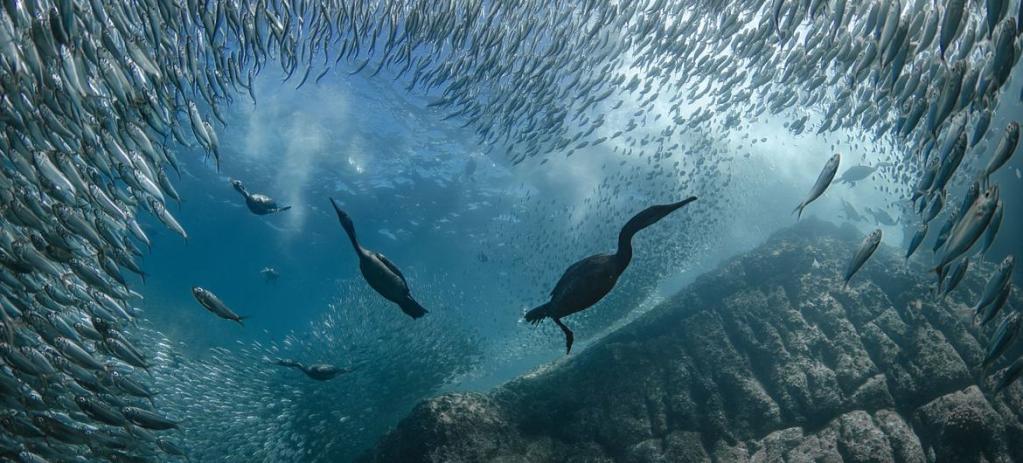
Story
13 June 2025
‘No Ocean Declaration without small islands’: Delegates push for inclusion as UN summit nears end
By Heyi Zou, reporting from Nice for UN NewsWith the conference, known as UNOC3, set to close Friday, the stakes couldn’t be higher.Li Junhua, the UN’s Under-Secretary-General for Economic and Social Affairs, told UN News on Thursday that the past four days have been marked by a rare sense of solidarity around Sustainable Development Goal 14 (SDG 14) – protection of life below water.“This is the true testament to the impact of this Conference on the future of our ocean,” he added.Draft outcome signals sense of urgencyUnder way since Monday on France’s sun-drenched Côte d’Azur, UNOC3 is set to conclude with the adoption of a consensus-backed package aimed at securing the future of the world’s oceans.Delegates are preparing to endorse a political declaration alongside a sweeping set of voluntary commitments from participating nations – collectively known as the Nice Ocean Action Plan.The declaration itself, titled ‘Our Ocean, Our Future: United for Urgent Action,’ has undergone four rounds of intense intergovernmental negotiations at UN Headquarters in New York since January, alongside informal consultations with key delegations and civil society groups.At the heart of the conference’s mission – mobilizing action to safeguard and sustainably manage marine ecosystems – the declaration, in draft form, signals a marked shift in tone, underscoring an unprecedented sense of urgency.It calls for immediate and transformative measures to protect oceans, reflecting growing concerns over climate change, biodiversity loss, and the depletion of marine resources. In addition, the draft declaration outlines measures to protect marine ecosystems and foster sustainable ocean-based economies. It also emphasizes accelerating action, highlighting that SDG 14 remains one of the least funded UN goals. To drive global ocean initiatives forward, the draft declaration calls for significant, accessible financing and the fulfillment of existing commitments under international agreements.The draft highlights the ocean’s deep ties to climate and biodiversity, urging nations to fully implement the Convention on Biological Diversity. It also reaffirms commitment to an international, legally binding agreement on plastic pollution, emphasizing a comprehensive approach that addresses plastics across their entire life cycle.Final negotiations are under way, and tomorrow we’ll report on whether nations have reached a consensus to tackle the global ocean emergency, turning decades of pledges into meaningful marine protection. Small island voices are vital to ocean policyAmong all the stakeholders, small island nations have a key role in shaping the Declaration. As communities most vulnerable to rising seas and marine degradation, their firsthand experience and leadership are essential to crafting effective, inclusive ocean policy.Safiya Sawney, Special Envoy and Ambassador for Climate of Grenada, told UN News that she is pleased to see the reference in the draft outcome to the Antigua and Barbuda Agenda for Small Island Developing States, or ABAS, which was adopted during the fourth International Conference on Small Island Developing States in May 2024.Ms. Sawney said that including the Antigua and Barbuda Agenda in the UNOC3 political declaration signals growing unity among island nations. She emphasized that, despite numerous challenges, small islands are committed to implementing every obligation under ABAS, demonstrating their determination to turn commitments into action.“A big part of our heritage, of our culture, of our economy is derived from the ocean,” she said, “So for us, you cannot have an ocean declaration without SIDS.”‘No compromise with nature’As for the negotiation process on the draft declaration, Ms. Sawney said that Grenada and other delegations in the Alliance of Small Island States (AOSIS) affirmed that they were leveraging strength and experience from past climate talks and bringing that to the ocean space.“Part of healthy multilateralism is knowing that you have to compromise,” she admitted, but also adding that “the one thing that we cannot compromise with, however, is nature”.To ensure that “we're able to all be successful together in supporting this ocean agenda”, she suggested that “there are some countries that need to do more than others”. She added that small island developing States are asking those countries to show their leadership, not just through offsets or financing, but through “real action”. Caribbean governments acting togetherCalling themselves “large ocean nations” at UNOC3, small island developing States are aggregating their weight to not only participate in but shape the global ocean agenda, said Ms. Sawney. Among these efforts, Caribbean governments have been keen to demonstrate political unity and regional ambition throughout the run of the conference.On the opening day of UNOC3, the Actioning Blue: Caribbean 30x30 Vision for the Ocean was officially launched. It reflects an urgent call by political leaders of the Caribbean to advance collective regional advocacy aligned with the Kunming-Montreal Global Biodiversity Framework, as well as SDG14.“Coming into UNOC3, we endorsed 12 Caribbean governments, including independent states and territories, and we've had one additional signature and expression of interest from three different governments,” explained Ms. Sawney.Changing the tide of over-relianceRecalling the 2008 Caribbean Challenge Initiative that advanced the protection of roughly 49,000 km of marine protected areas in the region, Ms. Sawney said part of what the newly launched Vision does is remind the international community that “we will continue to work, we'll continue to show up, and we really like their help”.Describing the Caribbean as “capacity-constrained”, she however pointed to the region’s over-reliance on external help, experts, and capacity.“We're trying to change the tide,” she continued, by stressing the importance of letting donors know that the region is very invested in building its own capacity and owning its own implementation.Seeing UNOC3 as an important opportunity to get across this message, Ms. Sawney stated that Caribbean Islands are not just looking forward to the end of the Conference, but what happens afterwards.“The real work begins after all of this is over,” she concluded with hope.....................................................................................This story was first published by UN News., filtered_html
1 of 5
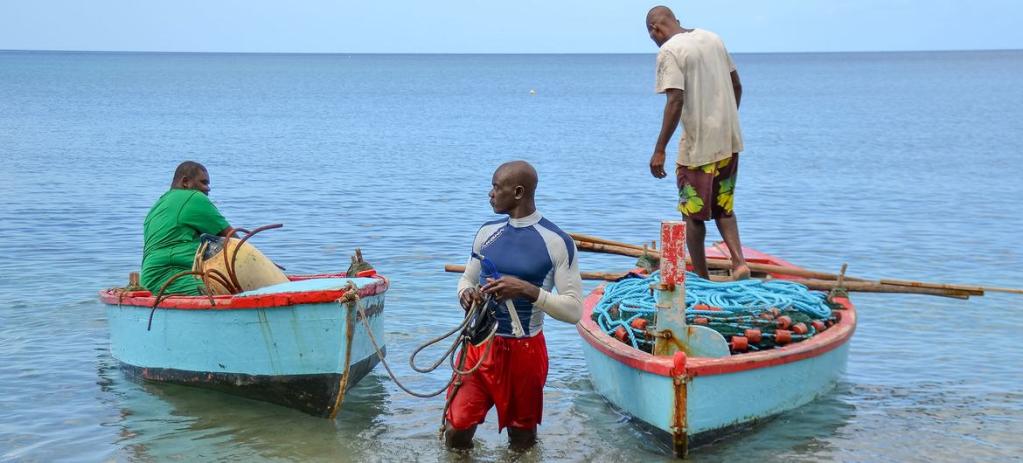
Story
13 June 2025
Global push to end plastic pollution gains ground in Nice
Away from the cameras and fanfare of the Third UN Ocean Conference under way in the coastal French city, they voiced a shared determination to finalize this year a global treaty that could, for the first time, regulate plastics across their entire life cycle.“There is renewed commitment to conclude the treaty in August,” Jyoti Mathur-Filipp, who attended the meeting and is leading the treaty negotiations, told UN News. “This is too urgent an issue to be left for the future.”Hosted by Inger Andersen, the head of the UN Environment Programme (UNEP), the informal gathering marked a quiet but significant diplomatic moment – a sign that after two years of deliberations, political momentum may finally be catching up with scientific alarm.With one round of talks remaining – scheduled from August 5 to 14 in Geneva – negotiators are now under pressure to deliver the first legally binding treaty aimed at tackling plastic pollution across production, consumption, and waste.A crisis accelerating in plain sightPlastic waste has infiltrated nearly every ecosystem on Earth including the human body, increasingly in the form of microplastics. Without urgent action, the amount of plastic entering the ocean each year could reach 37 million metric tons by 2040, according to UN estimates.“We are choking with plastic,” Ms. Mathur-Filipp said. “If we do not do something to tackle plastic pollution, we will not have a single ecosystem left, whether it's terrestrial or marine.”The economic toll is no less staggering. Between 2016 and 2040, the projected cost of plastic-related damage could reach $281 trillion. “It is costing the economy a lot,” said the Indian native. “In tourism, in beach clean-up, in lack of fish for fishing folk, coastal damage, wetlands damage.” The final stretch in GenevaThe treaty process was launched in 2022, at the request of the UN Environment Assembly, the world’s highest decision-making body on environmental issues, held every two years in Nairobi Kenya. Since then, the Intergovernmental Negotiating Committee (INC) has convened five times in less than two years – an unusually rapid timeline by UN standards.“We have had five sessions very rapidly from December of 2022 to December of 2024,” said Ms. Mathur-Filipp, who serves as the INC’s Executive Secretary. She hopes the upcoming session this August in Geneva will mark the treaty’s conclusion.A key breakthrough came six months ago at the last round of talks in Busan, South Korea, where delegates produced a 22-page “Chair’s text,” outlining the draft treaty’s basic structure.“It has 32 or 33 articles in it, with names of articles, so countries can now start seeing what this treaty will look like,” she explained. “They have started speaking with article numbers for negotiation… and this is why my hope is that there would be a conclusion.”A treaty with teeth – and flexibilityWhile the draft treaty is still under negotiation, it includes measures that would target the entire life cycle of plastic – from upstream production to downstream waste. It reflects both mandatory and voluntary provisions, in line with the original UN mandate.The current draft also includes the institutional architecture of a typical multilateral treaty: the ratification process, governance rules, and proposed implementation bodies.“It has an objective. It has a preamble,” said Ms. Mathur-Filipp. “It looks like a treaty.”If all goes according to plan, the final text will be submitted to a diplomatic conference – later this year or in early 2026 – where governments can formally adopt it and begin the ratification process.Unequal burdens, global stakesAlthough plastic pollution is a global issue, some countries – especially small island developing states – bear a disproportionate burden.“It is a fact that small island developing states are not the ones that are using plastic as much as what’s flowing onto their shores and therefore, they become responsible for beach clean-up, which is not their doing,” Mathur-Filipp said. “They are unfairly impacted.”An estimated 18 to 20 per cent of global plastic waste ends up in the ocean.One diplomat’s missionBefore leading the INC, Ms. Mathur-Filipp worked at the UN Convention on Biological Diversity, where she helped shape the landmark Kunming-Montreal Global Biodiversity Framework, the 2022 agreement to protect 30 per cent of the planet’s land and ocean by 2030. The challenge of managing a fast-moving, high-stakes negotiation is familiar terrain.“I wasn’t tired enough there, so now I’m doing this,” she said.As the Mediterranean UNOC3 host city plays its part in building momentum, all eyes will, in the weeks ahead, turn to Geneva. The outcome in August could determine whether the world takes a decisive step toward curbing the plastic crisis – or allows it to deepen, unchecked....................................................................................This story was first published by UN News., filtered_html
1 of 5
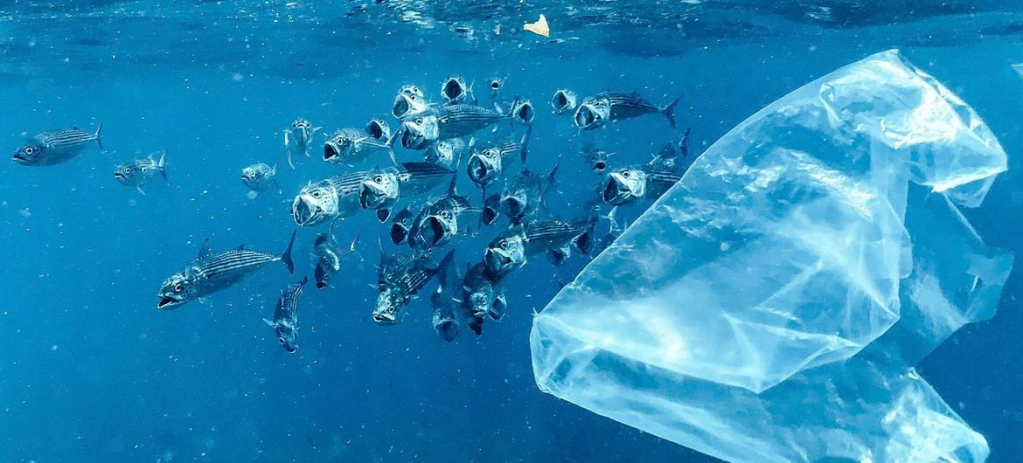
Press Release
13 May 2025
Small islands, big challenges: SIDS rally for stronger chemicals and waste management
Geneva, 12 May 2025 – Over 50 representatives from Small Island Developing States (SIDS) are gathering at the Palais des Nations in Geneva for the first in-person ISLANDS Forum to strengthen sound management of chemicals and waste in these uniquely vulnerable nations.In the wake of the 2025 Meetings of the Conferences of the Parties to the Basel, Rotterdam and Stockholm Conventions (2025 BRS COPs), the two-day forum opens dedicated space for SIDS-to-SIDS exchange. It will showcase emerging solutions and demonstrated strategies for targeted action on chemicals and waste.“Small island states are on the frontline of pollution and waste challenges — and they are also leading the charge in innovation,” said Anil Sookdeo, Chemicals and Waste Focal Area Coordinator at the Global Environment Facility (GEF). “Through ISLANDS, we are fostering SIDS-to-SIDS cooperation, building lasting capacity, scaling solutions, and ensuring that the knowledge created today drives sustainable progress for years to come.”The ISLANDS Forum will focus on priority areas crucial to SIDS: stronger policies, technical solutions, public-private partnerships and sustainable financing. Experts will share best practices for managing e-waste and end-of-life vehicles (ELVs), controlling hazardous waste flows, and attracting private investment for long-term waste management solutions. Building A Global ISLANDS Community of PracticeThe ISLANDS Forum marks the midpoint of the Implementing Sustainable Low and Non-Chemical Development in Small Island Developing States (ISLANDS) Programme, a major global initiative to support SIDS across the Atlantic, Caribbean, Indian, and Pacific Oceans to better manage hazardous chemicals and waste and deliver on their commitments under the BRS Conventions.ISLANDS is fostering new pathways for cooperation and knowledge exchange within the SIDS chemical and waste community of practice. Partnerships forged during this event will enhance SIDS' ability to face their unique environmental challenges while supporting the creation of sustainable, long-term solutions that will benefit the global community. This collaborative approach drives scalable, sustainable outcomes, ensuring long-term impact in SIDS communities. Making blueprints for sustainable chemicals and waste management in SIDSA dynamic range of case studies will showcase how SIDS are implementing practical, scalable solutions to manage hazardous chemicals and waste. These stories highlight national innovation and regional collaboration, offering valuable lessons for replication in other island contexts and beyond.Among the highlights is Mauritius’ Interim Hazardous Waste Storage Facility, established with support from the United Nations Development Programme (UNDP), which enables the safe storage, packaging, labeling and export of hazardous materials to certified facilities abroad—an approach that proved critical during the 2020 Wakashio oil spill.In the Pacific, the Moana Taka Partnership—developed by the Secretariat of the Pacific Regional Environment Programme (SPREP) in collaboration with Swire Shipping—leverages empty cargo return routes to transport eligible waste streams free-of-charge from island countries, easing logistical and environmental pressures.From the Caribbean, BCRC-Caribbean will present lessons learned from executing multiple projects under a harmonised approach with the Food and Agriculture Organization of the United Nations (FAO), IDB and UNEP, emphasising policy coordination and regional synergies.The Inter-American Development Bank (IDB) will showcase its Caribbean Incubator Facility, which mobilises financial support to strengthen policy and regulatory frameworks and channels public and private financing to support scalable solutions through technical assistance and investment grants.“For over two decades, the IDB has partnered with the GEF to bring innovative and impactful environmental solutions to Latin America and the Caribbean,” said Alfredo Rihm, Senior Solid Waste Specialist at IDB. “By combining concessional resources with our technical expertise and financing instruments, we help countries advance sustainable development in critical areas such as solid waste management. This partnership reflects our mission to improve lives in Latin America and the Caribbean—by supporting governments and the private sector in scaling solutions that protect ecosystems, strengthen communities, and foster long-term resilience.” ISLANDS in Action: High-level panelA high-level panel will formally close the Forum, featuring outside voices with expertise on e-waste, ELVs and highly hazardous waste. It will be broadcast live on UN Web TV and on gefislands.orgLooking ahead in the ISLANDS Programme, two pilot projects are set to launch in 2025 in partnership with Carnival Cruise Line, to improve plastic waste management from cruise ships in the Dominican Republic and the Bahamas. The pilots will test practical solutions to reduce marine plastic pollution. They will strengthen waste segregation, collection, and recycling at ports and in nearby communities.For more information and to watch the closing panel livestream, visit: gefislands/events/islands-forum-2025/ NOTES TO EDITORS:About ISLANDS The Implementing Sustainable Low and Non-Chemical Development in Small Island Developing States (ISLANDS) Programme is a $515-million, five-year initiative funded by the Global Environment Facility, supporting 33 Small Island Developing States in four regions - the Atlantic, Caribbean, Indian and Pacific - to improve chemicals and waste management in their territories. ISLANDS is led by the United Nations Environment Programme (UNEP), in cooperation with the United Nations Development Programme, Food and Agriculture Organization of the United Nations, and the Inter-American Development Bank. About UNEP UNEP is the leading global voice on the environment. It provides leadership and encourages partnership in caring for the environment by inspiring, informing and enabling nations and peoples to improve their quality of life without compromising that of future generationsAbout the Global Environment Facility The Global Environment Facility is the largest multilateral fund working to enable developing countries to invest in nature. It supports the implementation of international environmental conventions on biodiversity, climate change, chemicals, and desertification. Since 1991, it has provided more than $21.7 billion in grants and blended finance and mobilized an additional $119 billion in co-financing for more than 5,000 projects and programmes.About the GGKPThe Green Growth Knowledge Partnership (GGKP) is a global network of experts and organizations dedicated to providing the policy, business and finance communities with knowledge, guidance, data and tools to transition to an inclusive green economy. GGKP executes the ISLANDS Coordination, Communications and Knowledge Management (CCKM) child project, which is designed to help foster knowledge-sharing, communication, and peer learning across the ISLANDS Programme. MEDIA CONTACT: Elena Chernysheva, ISLANDS Communications, elena.chernysheva@un.org, filtered_html
1 of 5
Press Release
06 May 2025
Dominica: First visit by UN Special Rapporteur on climate change and human rights
The expert will examine and document the human rights impacts of climate change, the challenges and progress of international climate cooperation, and the needs for international technical assistance, capacity-building and international finance in Dominica.The Special Rapporteur will also analyse the integration of human rights-based approaches, including gender and intersectional perspectives, across climate change adaptation policies and responses to loss and damage.Morgera will meet with Government officials, representatives from civil society and other stakeholders including communities affected by climate change. Meetings will be held in the capital Roseau and other regions.The Special Rapporteur will present her preliminary findings and recommendations at a press conference on 14 May at 9:00am local time at the Fort Young Hotel (Victoria Street, Roseau) in Roseau. Access will be strictly limited to journalists.The Special Rapporteur will present a report on the visit to the UN Human Rights Council in June 2026.ENDSMs. Elisa Morgera is the Special Rapporteur on the promotion and protection of human rights in the context of climate change.Special Rapporteurs/Independent Experts/Working Groups are independent human rights experts appointed by the United Nations Human Rights Council. Together, these experts are referred to as the Special Procedures of the Human Rights Council. Special Procedures experts work on a voluntary basis; they are not UN staff and do not receive a salary for their work. While the UN Human Rights office acts as the secretariat for Special Procedures, the experts serve in their individual capacity and are independent from any government or organization, including OHCHR and the UN. Any views or opinions presented are solely those of the author and do not necessarily represent those of the UN or OHCHR. Country-specific observations and recommendations by the UN human rights mechanisms, including the special procedures, the treaty bodies and the Universal Periodic Review, can be found on the Universal Human Rights Index https://uhri.ohchr.org/en/For additional information and media requests please contact: frederique.bourque@un.orgFor media enquiries regarding the visit, please contact Carol-Ann Gaskin carol-ann.gaskin@un.org.For media enquiries regarding other UN independent experts, please contact Maya Derouaz (maya.derouaz@un.org) and Dharisha Indraguptha (dharisha.indraguptha@un.org)., filtered_html
1 of 5
Press Release
01 May 2025
Guyana’s human rights record to be examined by Universal Periodic Review
Guyana is one of 14 States to be reviewed by the UPR Working Group during its upcoming session from 28 April to 9 May 2025. The first, second and third UPR reviews of Guyana took place in May 2010, January 2015 and January 2020, respectively.The UPR Working Group is comprised of the 47 Member States of the Human Rights Council. However, each of the 193 UN Member States can participate in a country review.The documents on which the reviews are based are: 1) national report - information provided by the State under review; 2) information contained in the reports of independent human rights experts and groups, known as the special procedures, human rights treaty bodies, and other UN entities; 3) information provided by other stakeholders including national human rights institutions, regional organizations, and civil society groups.The three reports serving as the basis for the review of Guyana on 6 May can be found here.Location: Room XX, Palais des Nations, Geneva.Time and date: 14:30 – 18:00, Tuesday, 6 May 2025 (GMT+1).The UPR is a peer review of the human rights records of all 193 UN Member States. Since its first meeting was held in April 2008, all 193 UN Member States have been reviewed thrice. During the fourth UPR cycle, States are again expected to spell out steps they have taken to implement recommendations posed during their previous reviews which they committed to follow up on and highlight recent human rights developments in the country.The delegation of Guyana will be led by Ambassador Ms. Carolyn Rodrigues-Birkett, Permanent Representative of Guyana to the United Nations in New York, accompanied by Ms. Oneidge Walrond, Minister of Tourism, Industry and Commerce.The three country representatives serving as rapporteurs (“troika”) for the review of Guyana are Belgium, Democratic Republic of the Congo, and Dominican Republic.The webcast of the session will be at: https://webtv.un.org/en/asset/k1q/k1qw0iej2oThe list of speakers and all available statements to be delivered during the review of Guyana will be posted on the UPR Extranet.The UPR Working Group is scheduled to adopt the recommendations made to Guyana on Friday, 9 May 2025, between 16:00 and 18:00 (GMT+1). The State under review may wish to express its positions on recommendations posed to it during its review. // ENDS // For more information and media requests, please contact Pascal Sim, Media Officer, at simp@un.org, David Díaz Martín, Public Information Officer at david.diazmartin@un.org, and Matthew Brown, Public Information Officer, at matthew.brown@un.orgTo learn more about the Universal Periodic Review: www.ohchr.org/en/hr-bodies/upr/upr-mainSign up for the UN Human Rights Council Newsletter: https://mailchi.mp/a3a538479938/hrc-mailshot-to-ohchr-global, filtered_html
1 of 5
Press Release
30 April 2025
Grenada’s human rights record to be examined by Universal Periodic Review
Grenada is one of 14 States to be reviewed by the UPR Working Group during its upcoming session from 28 April to 9 May 2025. The first, second and third UPR reviews of Grenada took place in May 2010, January 2015, and January 2020, respectively.The UPR Working Group is comprised of the 47 Member States of the Human Rights Council. However, each of the 193 UN Member States can participate in a country review.The documents on which the reviews are based are: 1) national report - information provided by the State under review; 2) information contained in the reports of independent human rights experts and groups, known as the special procedures, human rights treaty bodies, and other UN entities; 3) information provided by other stakeholders including national human rights institutions, regional organizations, and civil society groups.The three reports serving as the basis for the review of Grenada on 5 May can be found here.Location: Room XX, Palais des Nations, Geneva.Time and date: 14:30 – 18:00, Monday, 5 May 2025 (GMT+2).The UPR is a peer review of the human rights records of all 193 UN Member States. Since its first meeting was held in April 2008, all 193 UN Member States have been reviewed thrice. During the fourth UPR cycle, States are again expected to spell out steps they have taken to implement recommendations posed during their previous reviews which they committed to follow up on and highlight recent human rights developments in the country.The delegation of Grenada will be led by Roxie McLeish-Hutchinson, Permanent Secretary with responsibility for Foreign Affairs, Ministry of Foreign Affairs, Trade and Export Development.The three country representatives serving as rapporteurs (“troika”) for the review of Grenada are Spain, Brazil and Qatar.The webcast of the session will be at: https://webtv.un.org/en/asset/k1v/k1vxg2nb60The list of speakers and all available statements to be delivered during the review of Grenada will be posted on the UPR Extranet. The UPR Working Group is scheduled to adopt the recommendations made to Grenada on Friday, 9 May 2025, between 16:00 and 18:00 (GMT+2). The State under review may wish to express its positions on recommendations posed to it during its review. // ENDS //For more information and media requests, please contact Pascal Sim, Media Officer, at simp@un.org, David Díaz Martín, Public Information Officer at david.diazmartin@un.org, and Matthew Brown, Public Information Officer, at Matthew.Brown@un.orgTo learn more about the Universal Periodic Review: www.ohchr.org/en/hr-bodies/upr/upr-mainSign up for the UN Human Rights Council Newsletter: https://mailchi.mp/a3a538479938/hrc-mailshot-to-ohchr-global , filtered_html
1 of 5
Press Release
11 April 2025
UN Human Rights (OHCHR) Strengthens Regional Action to Protect Environmental Defenders in Latin America and the Caribbean
This landmark event marked the first official regional gathering on the Escazú Agreement in the Caribbean, bringing together nearly 200 participants from 31 nationalities, including environmental human rights defenders, government representatives, civil society organizations, and international experts.As a co-organizer, OHCHR reaffirmed its commitment to promoting and protecting the rights of environmental defenders throughout the region. The Forum advanced the regional understanding and implementation of Article 9 of the Escazú Agreement, which focuses on the protection of environmental human rights defenders.The dynamic discussions led to a wide array of proposals for an upcoming regional assessment on the situation of environmental defenders—spotlighting significant progress while acknowledging ongoing challenges. A key highlight was the integration of a gender perspective, which resulted in clear, actionable recommendations for gender-responsive protection mechanisms.Through workshops prepared and facilitated by OHCHR, participants also strengthened their knowledge and skills in access to justice and digital security, equipping defenders with practical tools to enhance their safety and impact.The exchange of experiences and innovative ideas fostered stronger regional cooperation networks, laying a robust foundation for future action under the Escazú framework.OHCHR’s leadership in this Forum—spearheaded by the Environment and Civic Space Teams from the LAC Regional Strategies Project (ROSA & ROCA) financed by Sweeden, in close coordination with its CARICOM and Mexico offices—was instrumental in achieving these outcomes. This effort reflects OHCHR’s continued dedication to supporting human rights defenders and building resilient civic spaces across Latin America and the Caribbean.END, filtered_html
1 of 5
Latest Resources
1 / 11
1 / 11




















